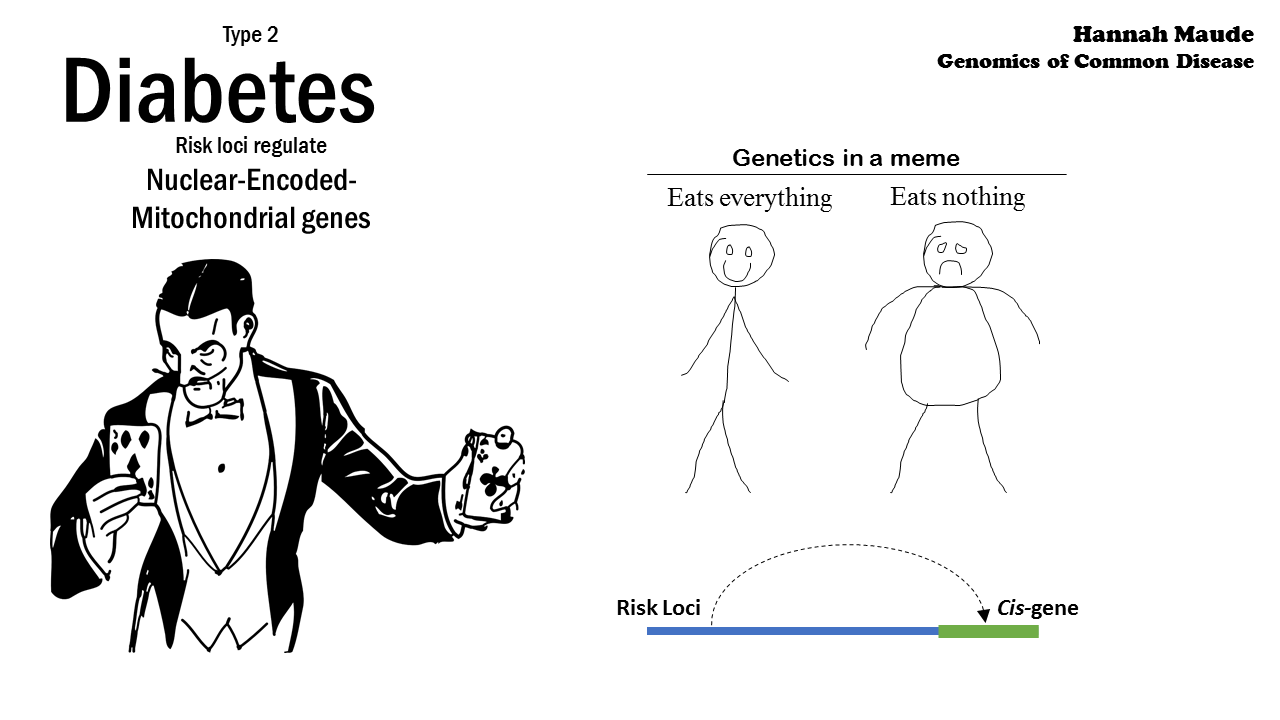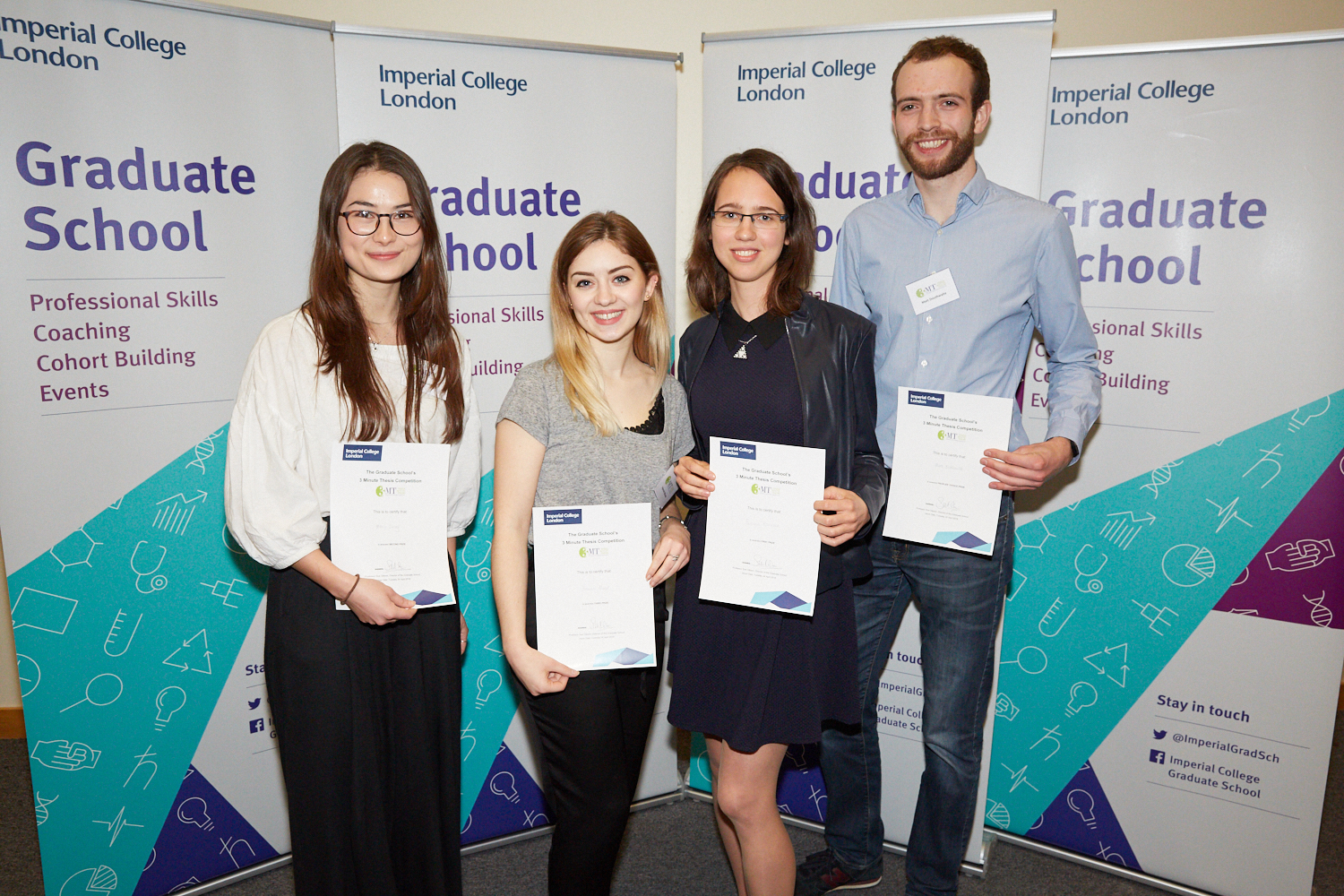By Hannah Maude, 2nd Year PhD Student, Department of Medicine.
hannah.maude12@imperial.ac.uk
I was absolutely thrilled to recently be awarded third place in the Graduate School Three Minute Thesis (3MT) Competition. Not only because it was completely unexpected, but because the standard of the competition was insanely high (classic Imperial?!). Every single contestant gave an excellent talk.
If you aren’t familiar with the concept of a three-minute thesis, I can tell you it means exactly that: describe your three-year PhD in three minutes. Sounds a challenge, right? I confess that my favourite bad habit is signing up to anything outside my comfort zone; bad because it means experiencing all the nerves and potential failure, but good because overcoming the challenge means learning new skills, feeling proud of my achievements, and ultimately having a great time.
What’s involved?
The first brief was quite general, “nominees will present their current research in one slide and three minutes”, so I did what I do best and carried out some research. YouTube revealed that 3MT equals general overview of your research topic: background, clarity, content, confidence, enthusiasm and simplicity were just a few of the recommended qualities. People approach this in different ways, some choose to speak ad-lib, while others—including myself—write a speech and learn it word for word.
What did your speech cover?
My speech covered the background and concepts behind my research, in a nutshell that risk of Type 2 Diabetes can be inherited, and that I spend my days researching exactly how DNA mutations increase your risk of disease. See the published speech: https://hanmaude.wixsite.com/keepcalmreadscience/my-3-minute-thesis

How was the experience?
Honestly, the idea of standing up at the front of a lecture theatre and reciting a speech word for word within a strict time limit is pretty daunting. Once on stage however, I really enjoyed myself. I was able to be fully enthusiastic about my work and explain it to an audience who were genuinely curious. I also loved listening to all the other fascinating 3MT’s – who knew the concept of mixing two liquids could be so interesting?!
What did you learn?
The aim of a 3MT is to help a lay audience understand what you are researching. Not only is this super fun (and my Mum finally understands what I do) but taking a step back to think about your research in very basic terms, is totally underrated. I learnt to overcome my nerves, to be disciplined within a time limit, and how to communicate my research.
Take home message?
I would recommend the 3MT competition to all graduate students. It’s one of my biggest achievements this year and was so much fun. If you’re not one for presenting, I would absolutely recommend watching. It’s an inspiring event with engaging talks and you get a real feel for the huge variety of PhD projects going on at Imperial.
